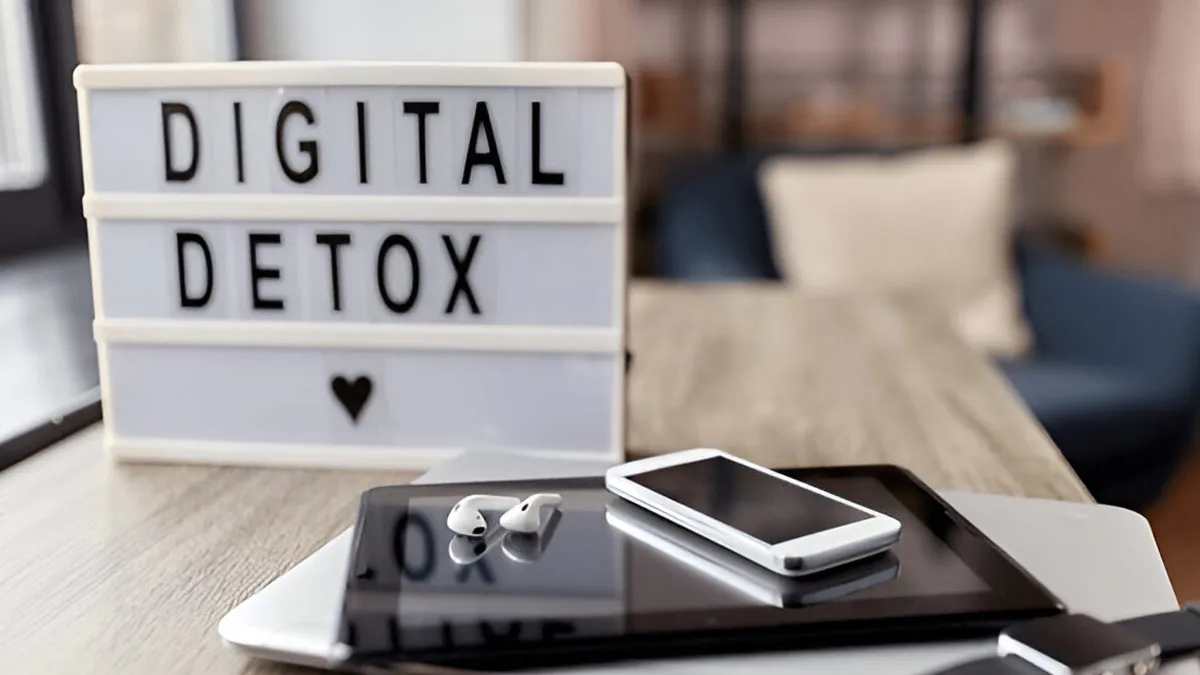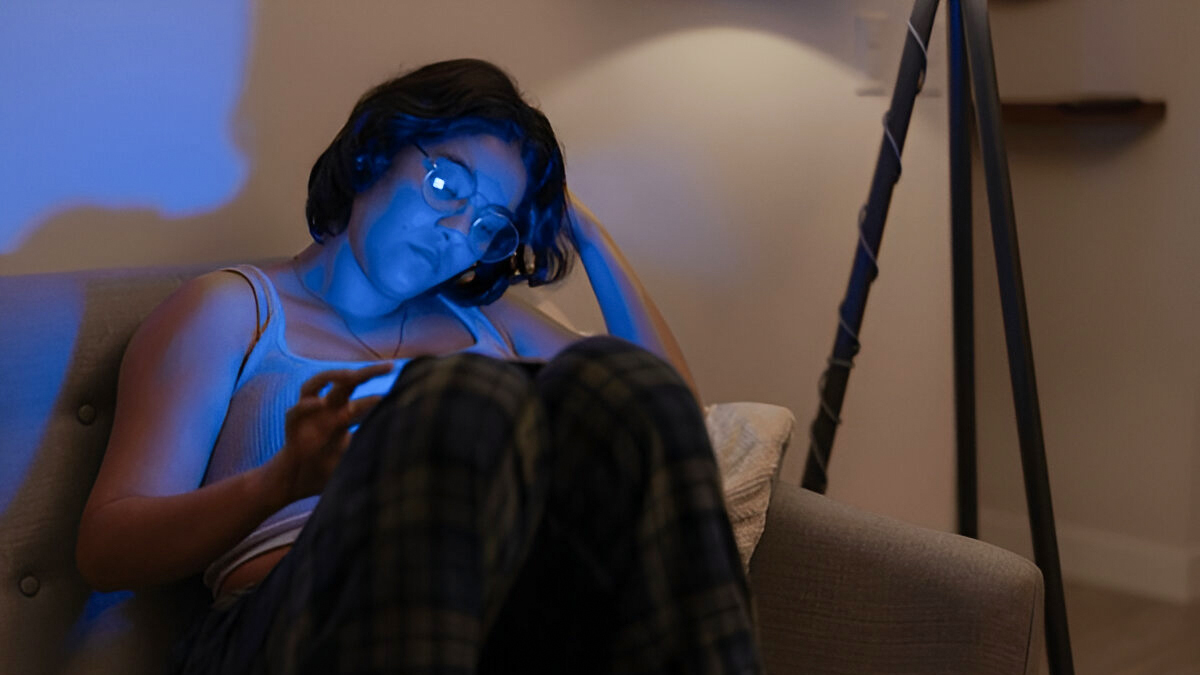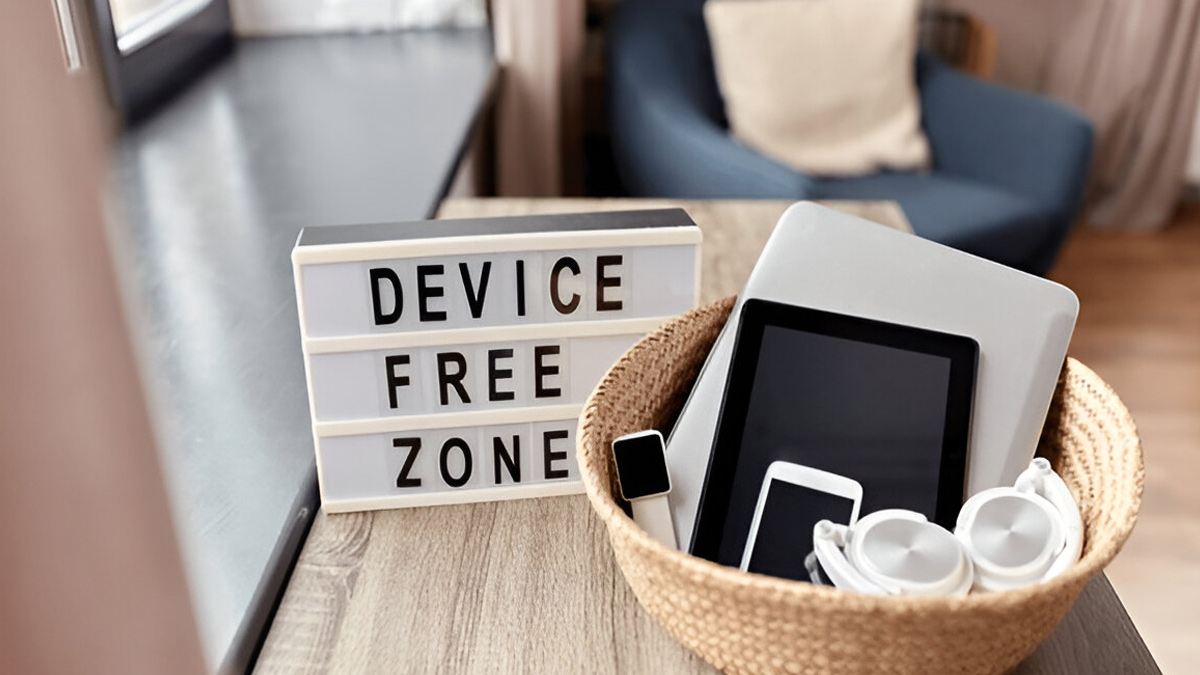
In today’s hyper-connected world, where every notification, email, and social media update demands our attention, the idea of a digital detox sounds refreshing. Digital etox refer to the conscious effort one puts in by switching off their devices for a day and reconnect with yourself. You may have come across many people who say this but the question remains, is unplugging for a day actually a realistic way to improve mental health, or just an idealistic wellness trend?
Table of Content:-
CHECK YOUR
MENTAL HEALTH

Mental Strain of Constant Connectivity
Research indicates that excessive screen time is associated with stress, anxiety, and poor sleep. The constant urge to reply or stay current can cause an always-on exhaustion, preventing the brain from actually resting. For others, particularly professionals bound by work email or students dealing with online homework, devices are a necessity rather than a convenience.

Also Read: Could Your Chronic Condition Be Causing Your Insomnia? Find Out Here
What Is Unplugging and It’s Benefits
Even brief technology breaks can be good for mental health. A screen-free day can:
- Decrease stress by reducing exposure to constant digital stimulation.
- Increase concentration and present-moment awareness, enabling you to delve more intensely into offline pursuits such as reading, taking a walk, or hanging out with family or friends.
- Improve sleep quality by eliminating the blue-light interruption that comes with late-night scrolling.
- Experts recommend that unplugging functions as an intellectual "reset," allowing the brain room to breathe and recharge.
Barriers That Occur During Unplugging
Even with the advantages, realisticaly, a complete 24-hour detox is not possible for all. Work schedule, family duties, or even use of phones for navigation and payments render it difficult to completely disconnect. Rather than going all-or-nothing, most mental health experts suggest digital boundaries such as screen-free mornings, no phones at the table, or device bedtimes.

How To Strike A Balance Between Digital Life and Unplugging
Instead of aiming for a flawless day of being unplugged, try micro-detoxes:
- Take one to two hours of tech-free time each day.
- Switch off non-essential notifications.
- Spend weekends doing outdoor or creative pursuits that don't involve screens.
- These little, daily changes can make digital detox more viable and, ultimately, just as good as a full break.
Bottomline
Unplugging for an entire day might sound liberating, but in most cases, it isn't always feasible. But the essence behind it of regaining time, minimising stress, and cultivating mindfulness, can still be maintained through practical digital borders. It is not about being perfect but balanced, with technology working for you and not over you.
Also watch this video
How we keep this article up to date:
We work with experts and keep a close eye on the latest in health and wellness. Whenever there is a new research or helpful information, we update our articles with accurate and useful advice.
Current Version
Sep 18, 2025 13:19 IST
Published By : Tanya Srivastava